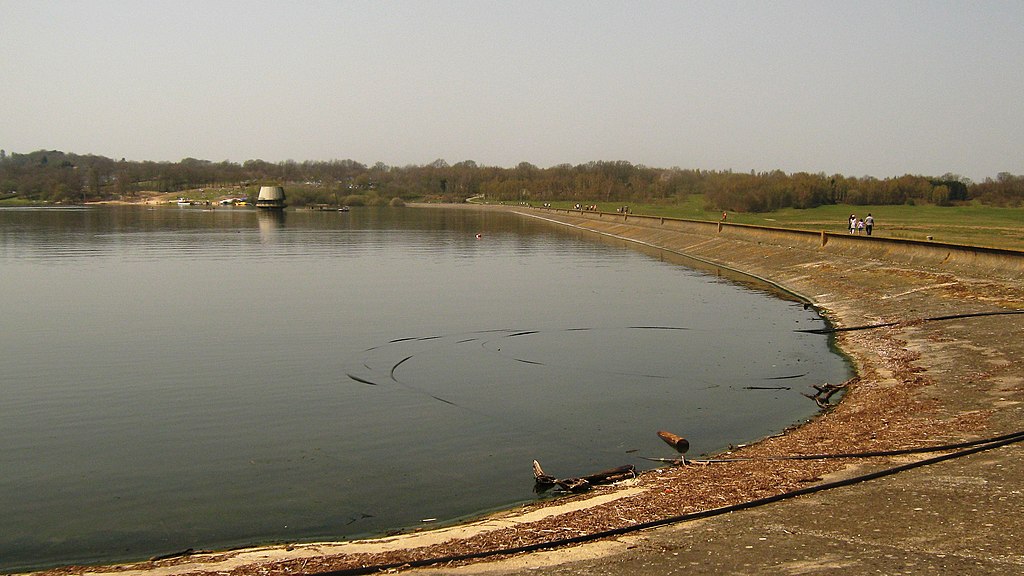Water is such an important part of our lives. There have been prolonged shortages of rainfall in historic times, notably 1890-1909, 1990-1992 and more recently 1995-1997.
The drought in 1995 triggered many drought mitigation, planning and infrastructure reactions prompted by the adverse economic effects. The Environment Agency has described the Dover and Folkestone regions as “Exceptionally Low” with regards to rainfall.
The overall effects, however, are not just economic but more wide-ranging:
- Livestock, such as sheep, pigs and cows, become short of fresh grass to graze resulting in poorer condition and growth and a reliance on winter hay (which may be in short supply).
- Grains and other crops may not swell to full size and the crop may be poor quality and low yield. These food supply difficulties ultimately contribute to the rise in the cost of living.
- The danger of fire and subsequent destruction of land and property has reached the UK after many years of trauma across the globe in places like the USA, Australia, Europe and Africa.
- With the failure of crops and livestock there can be many ongoing indirect effects such as fewer jobs.
- Water restrictions by our Water Companies can be drastic and much more severe than a simple hose-pipe ban.
- Water quality – never very good to start with and very much a current issue – is compromised which can be a serious health hazard. This is potentially something that our Dover District Council can do something about.
- Wetlands, Rivers, lakes and ponds run dry with a subsequent loss of biodiversity.
- Trees are weakened and some may not recover while wildfires can destroy valuable timber.
- Water based activities and boat transport can suffer.
- recover such as increased stress on endangered species or even extinction.
- Wind erosion and reduced soil quality.
- There can be many social impacts of drought including public safety, health, conflict, and changes in lifestyle.
- Across the globe many people are losing their lives and livelihoods due to drought as well as devastating floods. The Climate Crisis is overtaking us. Melting ice is raising water levels and many people’s homes are already under water. Climate migration requires relocation and we may be facing increased numbers of refugees.

We need a plan. Poor water quality is a consequence of many factors including drought conditions and affects us all. The Green Party proposes the following action for our Council to protect our water quality-
This Council notes:
Residents are deeply concerned about water quality and the impact of regular wastewater discharge, which includes untreated sewage, into our local rivers and seas and the impact on wildlife and on human health. The UK has the dirtiest rivers in Europe. Releasing sewage into rivers is no longer an emergency-only situation occurring as a result of severe storms, but an everyday occurrence even in ‘normal’ rainfall, and that we are in a situation of cumulative overload on the sewage and wastewater system.
Whilst there are long term commitments, there are no plans in place which will address the immediate unacceptable situation either locally by Southern Water or by national government.
Both the local Dover District Council and national planning policy requires a robust approach to both water quality and pollution and a recent legal opinion from the Environmental Law Firm confirms the need to consider cumulative impact. Yet planning consultation documents show that it has not been the practice of council planners to ask Water Companies to report on cumulative impact i.e. whether or not development may lead to any potential increase in ’emergency’ discharge into rivers and seas.
This Council resolves to:
- Recognise this Council’s obligation to protect its rivers and seas, including from the cumulative impacts of pollution, in line with its local planning policy and the National Planning Policy Framework.
- Recognise that there is clear evidence of deterioration of water quality due to cumulative impact of multiple sewage discharge events or ‘sewage overload’.
- Ensure that an evidence base is compiled that assesses the cumulative impact of sewage discharge so that this is factored into decisions made in new iterations of the local plan, including the overall level of future development.
- Seek to better understand the cumulative impact of wastewater discharge including untreated sewage on our local rivers, wildlife and the health of our residents.
- Continue to take a lead on addressing this issue, working constructively with other agencies.
- Ask the chair of the relevant scrutiny committee to invite the Chief Executive of Southern Water plus senior representatives from the Environment Agency and Natural England to attend a meeting to answer questions on the current levels of sewage discharge.
- Ask Southern Water from this date onwards, in its planning consultation responses for major development, to clarify which treatment works will be managing the sewage; whether it has the information available to assess the impact on the number or duration of sewage discharges into local rivers or seas, and if it does have this information to share it.
- Request that planning officers, from now onwards, include in all reports relating to major development a specific section on the impact on watercourses, including the potential for the development to affect sewage outflow into watercourses (i.e. cumulative impact), or to flag if this information is not fully available, so that this information (or the lack of it) is clearly and transparently set out.
by Peter Findley, Dover & Deal Green Party